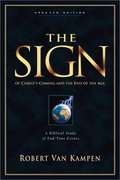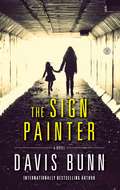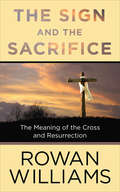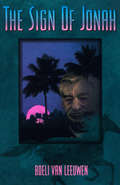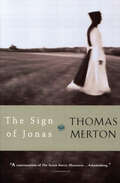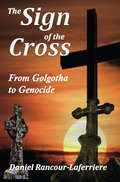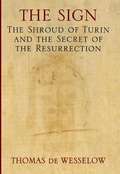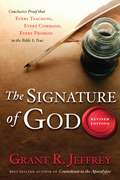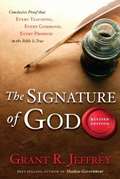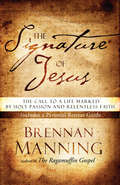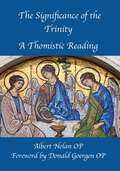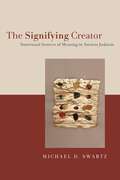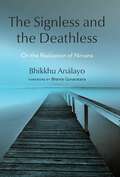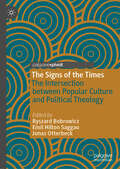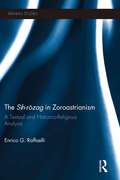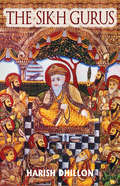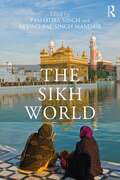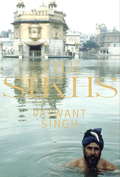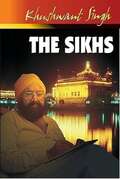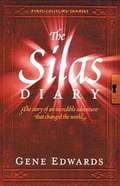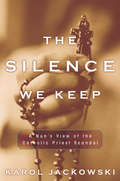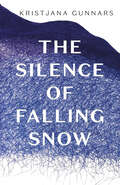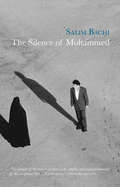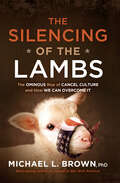- Table View
- List View
The Sign
by Robert Van KampenRobert Van Kampen takes the Scripture at face value and tells of the dooming end of age and the biblical prophecy concerning the last days.
The Sign Painter: A Novel
by Davis BunnA deeply emotive story about a young mother struggling to get back on her feet after a devastating loss leaves both her and her daughter alone and living on the street--from bestselling and award-winning author Davis Bunn.Amy Dowell had always considered herself a very good mother. But when she loses her husband to illness and her home to debt, she finds herself and her young daughter, Kimberly, living on the streets as she struggles to find a job that will get them back on their feet again. When Amy meets Lucy Watts, the pastor in charge of the church program that fed Amy and Kimberly their latest meal, Lucy sets them up in temporary housing and gives her a lead on a job painting signs for a local auto dealership--but Amy is hesitant to let go and trust. Is this finally a legitimate break? Can Amy subject herself to the possibility of disappointment and hurt by hoping again? Inspired by the true story, The Sign Painter is a tale of desperation, taking chances, and ultimately redemption. This heartwarming novel blends mystery, romance, and characters you'll root for, will leave you wondering-Is home really where the heart is?
The Sign and The Sacrifice: The Meaning Of The Cross And Resurrection
by Rowan WilliamsRowan Williams, former Archbishop of Canterbury, presents the Gospel accounts of Jesus' crucifixion and resurrection as viewed through the eyes of those who witnessed them. The Sign and the Sacrifice explores the meaning of the cross and the significance of Christ's resurrection, discussing what these events meant to Jesus' followers in the early years and what they can say to us today.
The Sign of Jonah
by Boeli Van LeeuwenIn his daily wanderings around Willemstad, Curaçao, an old man comes into contact with the underbelly of society: drunks, bums, thieves, and drop-outs. He stays out as late as possible because he is afraid of his fearful dreams about the horse of John--as described in the Apocalypse.
The Sign of Jonas
by Thomas MertonThis diary of a monastic life is &“a continuation of The Seven Storey Mountain . . . Astonishing&” (Commonweal). Chronicling six years of Thomas Merton&’s life in a Trappist monastery, The Sign of Jonas takes us through his day-to-day experiences at the Abbey of Our Lady of Gethsemani, where he lived in silence and prayer for much of his life. Concluding with the account of Merton&’s ordination as a priest, this diary documents his growing acceptance of his vocation—and the greater meaning he found within his private world of contemplation. &“This book is made unmistakably real and almost, at times, unbearably poignant by the fact that the exuberance of youth so often wells up through it with rapture, impatience, and even bluster.&” —TheNew York Times &“A stirring book—the most readable and on the whole, most illuminating of the author&’s writings.&” —Catholic World
The Sign of the Cross: From Golgotha to Genocide
by Daniel Rancour-LaferriereThis book presents a unique effort to create a new understanding of the Christian sign of the cross. At its core, it traces the conscious and unconscious influence of this visual symbol through time. What began as the crucifixion of a Jewish troublemaker in Roman-occupied Judea in the first century eventually gave rise to a broad spectrum of readings of the instrument used to accomplish such a punishment, a cross. The author argues that Jesus was a provocative, grandiose masochist whose suffering and death initially signified redemption for believers. This idea gradually morphed into a Christian sense of freedom to persecute and wage war against non-believers, however, as can be seen in the Crusades ("wars of the cross"). Many believers even construed the murder of their savior as a crime perpetrated by "the Jews," and this paranoid notion culminated in the mass murder of European Jews under the sign of the Nazi hooked cross (Hakenkreuz). Rancour-Laferriere's book is expertly written and argued; it will be readable to a large audience because it touches on many areas of controversy, interest, and scholarship. The work is critical, but not unfair; it employs psychoanalysis, art history (the study of the symbol of the cross in works of art), religion and religious texts, and world history generally. The interweaving of these various themes is what gives this work its ability to draw in readers-and will ultimately be what keeps the reader interested through the conclusion.
The Sign: The Shroud of Turin and the Secret of the Resurrection
by Thomas De WesselowThe Shroud of Turin, widely thought to be a fake, is in fact authentic. The greatest mystery in history is finally solved, in Thomas de Wesselow's The Sign. The birth of Christianity, nearly 2000 years ago, has shaped the whole course of human history. Yet historians still cannot explain how it all really began. What made Jesus's followers claim to have seen him alive again, three days after his crucifixion? Why did Christianity take off so quickly?It is one of the biggest and most profound of all historical mysteries. This extraordinary book, based on seven years of secret research by a brilliant historian, finally provides the answer. And it lies an enigmatic relic long assumed to be a fake: the Shroud of Turin. With historical detective work and cutting-edge scientific research, art historian Thomas de Wesselow has discovered that Jesus's followers did see something at the tomb. They saw something real but out of the ordinary - something that seemed like a miracle. It was the burial cloth of Jesus, stained with his body image. This ancient marvel was hailed as a sign of the Resurrection, and kick-started the Christian faith. The Sign details conclusive evidence that the Shroud of Turin is authentic, showing that the faint image on the cloth was formed naturally through a rare chemical reaction. It then explains how this revelation solves multiple puzzles of religious history: for example, the Gospel reports of the appearances of the Risen Christ are clearly based on early viewings of the Shroud. As well as a major historical breakthrough, The Sign is a truly thrilling read - and one you will never forget. 'Overturning 2,000 years of received biblical wisdom is no small matter. Consequently [this] book encompasses an impressive amount of scholarship and scientific examination. Persuasive. . . a very intriguing explanation' Michael Prodger, Mail on Sunday 'Fascinating. . . startling' Telegraph ' A fresh insight into the Easter story' Financial Times 'Thorough, well-researched and fair-minded. . . Persuasive. . . much more than just an addition to the canon of Shroud literature' Irish Times Thomas de Wesselow earned his MA and PhD at London's Courtauld Institute, researching the controversial Guidoriccio fresco in Siena, before becoming a Scholar at the British School in Rome where he worked on another of the great mysteries of Italian art history, the Assisi Problem. After a year in the curatorial department at the National Gallery in London, he was appointed a Post-Doctoral Research Associate at King's College, Cambridge, where he was later awarded a Leverhulme Early Career Fellowship. He has written on a number of famous Renaissance pictures whose meanings have hitherto defied analysis, including Botticelli's Primavera and Titian's Sacred and Profane Love. He has also developed new ideas about medieval world-maps, in particular the Hereford Mappamundi. Since 2007 he has been researching this book full-time. He is 40 years old and he lives in Cambridge.
The Signature of God: Astonishing Bible Codes Reveal September 11 Terror Attacks
by Grant R. JeffreyWith compelling scientific and rational evidence, Grant R. Jeffrey offers proof that the Bible is accurate both as history and prophecy. The Signature of God verifies beyond a doubt God's authorship-not only of Scripture, but of all creation.
The Signature of God: Conclusive Proof That Every Teaching, Every Command, Every Promise in the Bible Is True - Revised Edition
by Grant R. JeffreyYOU CAN BELIEVE THE BIBLE. WITHOUT ANY DOUBT. As American society becomes more secularized, Christians need to know all the facts about the Bible. Dr. Grant R. Jeffrey has spent decades researching history, science, archaeology, medicine, and prophecy--finding that each discipline confirms the truth of Scripture. This revised and updated edition ofThe Signature of Godproves that the Bible is not only accurate in its spiritual claims, but is completely reliable as well on matters of origins, medici...
The Signature of Jesus
by Brennan ManningThe Signature of Jesuschallenges the gospel of "cheap grace" and calls the church to radical discipleship. With passion and boldness, author Brennan Manning invites readers to risk living life as Jesus lived-committed to simplicity, purity of heart, and obedience to the gospel. As a radical alternative this book is offered to Christians who want to live by faith and not by mere "religion," for those who recognize that many of the burning theological issues in the church today are neither burning nor theological; who see Christianity neither as a moral code or a belief system but as a love affair; who have not forgotten that they are followers of a crucified Christ; who know that following him means living dangerously; who want to live the gospel without compromise; who have no greater desire than to have his signature written on the pages of their lives. "Behold," Jesus proclaims, "I stand at the door and knock. " You may have already met him at the doorhellip;but do you trulyknowhim? Have you been transformed by His furious, passionate, unexplainable love? Join Brennan Manning, the bestselling author ofThe Ragamuffin Gospel,on a personal journey to experience Christ's love and live with His passion.
The Significance of the Trinity: A Thomistic Reading
by Albert NolanThe Significance of the Trinity is Albert Nolan's lectorate in theology (STL), which was granted by the Dominican studium generale in Oxford and was awarded to him in 1961. It is a biblically based piece of work, Thomistic, and oriented towards the relevance of the doctrine for our Christian lives. There are three things we can note before reading it. (1) It shows Albert's beginning his own theological enterprise where all theology begins, or began, with the doctrine of the Trinity. (2) His approach at that time, and his training, was in the thought of St Thomas, which continued to ground him even as he moved more and more in the direction of doing theology contextually. (3) As Jesus became more and more the center of his theological thought, he had already begun his reflections on Jesus in his study of the Trinity. Albert became best known as a theologian with the publication in 1976 of his widely distributed and translated Jesus Before Christianity and thirty years later of Jesus Today. Jesus had already been on his mind but the Jesus of the electorate began where the story of Jesus himself begins, within the Trinity. From the Foreword by Donald Goergen OP, Chicago.
The Signifying Creator: Nontextual Sources of Meaning in Ancient Judaism
by Michael D SwartzFor centuries, Jews have been known as the "people of the book." It is commonly thought that Judaism in the first several centuries CE found meaning exclusively in textual sources. But there is another approach to meaning to be found in ancient Judaism, one that sees it in the natural world and derives it from visual clues rather than textual ones. According to this conception, God embedded hidden signs in the world that could be read by human beings and interpreted according to complex systems.In exploring the diverse functions of signs outside of the realm of the written word, Swartz introduces unfamiliar sources and motifs from the formative age of Judaism, including magical and divination texts and new interpretations of legends and midrashim from classical rabbinic literature. He shows us how ancient Jews perceived these signs and read them, elaborating on their use of divination, symbolic interpretation of physical features and dress, and interpretations of historical events. As we learn how these ancient people read the world, we begin to see how ancient people found meaning in unexpected ways.
The Signless and the Deathless: On the Realization of Nirvana
by Bhikkhu AnalayoAn insightful examination of the end of suffering that draws much-needed attention to two overlooked factors of Nirvana: signlessness and deathlessness.Nirvana is a critical part of the Buddhist path, though it remains a difficult concept to fully understand for Buddhist practitioners. In The Signless and the Deathless: On the Realization of Nirvana, scholar-monk Bhikkhu Analayo breaks new ground, or rediscovers old ground, by showing the reader that realizing Nirvana entails &“a complete stepping out of the way the mind usually constructs experience.&” With his extraordinary mastery of canonical Buddhist languages, Venerable Analayo first takes the reader through discussions in early Buddhist suttas on signs (Pali nimitta), the characteristic marks of things that signal to us what they are, and on cultivating concentration on signlessness as a meditative practice. Through practicing bare awareness, we can stop defilements that come from grasping at signs—and stop signs from arising in the first place. He then turns to deathlessness. Deftly avoiding the extremes of nihilism and eternalism that often cloud our understanding of Nirvana, Venerable Analayo shows us that deathless as an epithet of Nirvana &“stands for the complete transcendence of mental affliction by mortality&”—ours or others&’—and that it is achievable while still alive. Advanced practitioners and scholars alike will value the work for its meticulous academic expertise and its novel way of explaining the highest of all Buddhist goals—the final end of suffering.
The Signs and Wonders of Tuna Rashad
by Natasha DeenAn Ontario Library Association&’s Forest of Reading White Pine Reading List Pick! An Ontario Library Association Best Bets!From award-winning, #OwnVoices author Natasha Deen comes a new funny, honest, YA novel following one girl as she tries to win over her crush before she leaves for college. Let&’s be clear. No matter what her older brother, Robby, says, aspiring screenwriter Tuna Rashad is not &“stupidstitious.&” She is, however, cool with her Caribbean heritage, which means she is always on the lookout for messages from loved ones who have passed on. But ever since Robby became a widower, all he does is hang out at the house, mock Tuna for following in their ancestors&’ traditions, and meddle in her life. Tuna needs to break free from her brother&’s loving but over-bearing ways and get him a life (or at least, get him out of hers!). Based on the signs, her ancestors are on board. They also seem to be on board with helping Tuna win over her crush, Tristan Dangerfield. The only hiccup? She has to do it before leaving for college in the fall. A ticking clock, a grief-stricken brother, and a crush who doesn&’t believe in signs. What could possibly go wrong?
The Signs of the Times: The Intersection between Popular Culture and Political Theology (Contemporary Religion and Popular Culture)
by Jonas Otterbeck Ryszard Bobrowicz Emil Hilton SaggauThis book delves into the dynamic interplay of popular culture and political theology, examining three key areas of interaction: engagement with liturgy and scripture, film and television, and music. From depictions of Jesus in South Park and Family Guy to Beyoncé’s Lemonade, from cinematic scandals to portrayals of atheists and holy fools in film, from Islamic pop music to Bible-themed cookbooks and church yoga practices, this book explores how religious individuals and communities incorporate popular culture into their political theologies across diverse sets of beliefs and practices. In this way, the book heralds a renewed focus on popular culture’s theological potential and its impact on the collective imagination. This volume will captivate researchers in theology, religious studies, cultural studies, media studies, and sociology of religion, as well as general readers intrigued by religious themes in contemporary culture.
The Sih-Rozag in Zoroastrianism: A Textual and Historico-Religious Analysis (Iranian Studies)
by Enrico RaffaelliFocusing on the Avestan and Pahlavi versions of the Sīh-rōzag, a text worshipping Zoroastrian divine entities, this book explores the spiritual principles and physical realities associated with them. Introducing the book is an overview of the structural, linguistic and historico-religious elements of the Avestan Sīh-rōzag. This overview, as well as reconstructing its approximate chronology, helps in understanding the original ritual function of the text and its relationship to the other Avestan texts.The book then studies the translation of the text in the Middle Persian language, Pahlavi, which was produced several centuries after its initial composition, when Avestan was no longer understood by the majority of the Zoroastrian community. Addressing the lacuna in literature examining an erstwhile neglected Zoroastrian text, The Sih-Rozag in Zoroastrianism includes a detailed commentary and an English translation of both the Avestan and Pahlavi version of the Sīh-rōzag and will be of interest to researchers and scholars of Iranian Studies, Religion, and History.
The Sikh Gurus: Timeless Wisdom From The Life And Teachings Of Guru Nanak
by Harish DhillonA comprehensive, compelling, and insightful narrative that traces the birth, the growth, and the spread of Sikhism – one of the world’s most dynamic and progressive religions. In this perceptive work, Dr Harish Dhillon highlights the lives and times of the ten Sikh Gurus, beginning with Guru Nanak, who founded Sikhism in 1469, and ending with Guru Gobind Singh, who established the Khalsa Panth in 1699. It throws light on how the Gurus acquired profound knowledge and wisdom, which they sought to pass on to the common people through their teachings. Their life histories show how they sincerely practised what they preached and how they led by example. Apart from these, it recounts the enormous sacrifices the Gurus made to keep the faith going. In addition, the book gives elaborate details on how Sikhism has evolved over the centuries. This volume reveals the human side of the ‘Divine Gurus’ venerated not only by Sikhs, but also across various faiths in India and in other parts of the world. The contents in the book are intertwined with the underlying theme that the ideal religion (or faith) is one that is based on simplicity and keeps changing with the times, yet does not forget the very essence that it started with.
The Sikh World (Routledge Worlds)
by Arvind-Pal Singh Mandair Pashaura SinghThe Sikh World is an outstanding guide to the Sikh faith and culture in all its geographical and historical diversity. Written by a distinguished team of international contributors, it contains substantial thematic articles on the dynamic living experiences of the global Sikh community. The volume is organised into ten distinct sections: History, Institutions, and Practices Global Communities Ethical Issues Activism Modern Literature and Exegesis Music, Visual Art, and Architecture Citizenship, Sovereignty, and the Nation State Diversity and its Challenges Media Education Within these sections, interdisciplinary themes such as intellectual history, sexuality, ecotheology, art, literature, philosophy, music, cinema, medicine, science and technology, politics, and global interactions are explored. Integrating textual evidence with Sikh practice, this volume provides an authoritative and accessible source of information on all topics of Sikhism. The Sikh World will be essential reading to students of Sikh studies, South Asian studies and religious studies. It will also be of interest to those in related fields, such as sociology, world philosophies, political science, anthropology, and ethics.
The Sikhs
by Patwant SinghSingh (author, and a Sikh himself) recounts the story of this people their origins, traditions, beliefs, and recent history. He shows how a movement based on tenets of compassion and humanity transformed into a community that values bravery and military prowess as well as spirituality. Singh gives special attention to the role of Sikhs in modern India, and issues a call for political inclusiveness. Annotation c. Book News, Inc. , Portland, OR (booknews. com)
The Sikhs: Their Religion, History, Culture, Customs, And Way Of Life (Oxford India Paperbacks Ser.)
by Khushwant SinghIn this compact but informative book, the author presents a concise history of the followers of one of the world's newest religions Sikhism. Beginning with the life and times of the founder, the highly revered Guru Nanak (1469-1539), the contents move on to describe the vital contribution made by the following nine gurus in shaping and developing the Sikh religion. The significance of the Sikh holy book, the Guru Granth Sahib, and its centrality to the religion are emphasized. The author discusses epoch making developments such as the setting up of Singh Sabha and the accompanying social reform, the decisive Akali agitation for control of various Sikh shrines and the impact of the Ghadr rebellion.
The Silas Diary (The First-Century Diaries, Book #1)
by Gene EdwardsThe First-Century Diaries series book 1
The Silence We Keep: A Nun's View of the Catholic Priest Scandal
by Karol JackowskiA Catholic nun speaks out about her life and vocation, women in the Church, the sexual scandal in the priesthood, why the Catholic hierarchy won’t fix it, and how Catholics will take back their Church. Karol Jackowski joined the sisterhood forty years ago and remains a devout Catholic, but she is also an activist who now considers the reformation of the Church to be a part of her calling. InThe Silence We Keep, she takes an honest look at the priesthood throughout history and reveals a culture of privilege and sexual permissiveness that is as old as the Church itself. She turns a critical eye on a spirituality that she describes as hypocritical in its condemnation of the sins of others, while far worse behavior is perpetrated by the condemners. She also discusses the sisterhood and its culture of submissiveness to the male clergy, a passivity that has prevented a system of checks and balances that could have stopped the abuse. The Silence We Keepis hard-hitting in its frank discussion of the Church, but ultimately Sister Karol’s message is an uplifting and empowering call to action for all believers to seize upon this historic opportunity, break a centuries-old silence, and take back the Catholic Church.
The Silence of Falling Snow
by Kristjana GunnarsFrom an innovator of autofiction comes a meditation on grief, care, Buddhism, and artmaking. 'This is a story. It is a story about someone accompanying another to the last gate.'Years ago, Kristjana Gunnars took her husband back to his home in Oslo to die. Through the dark, cold days, she tends to his needs as she feels her own self disintegrating. Later, as she looks back to this slow departure of the man she loved, she weaves together threads from her own life, reflections on the thoughts of Gautama Buddha, discussions of Renaissance art, and considerations of contemporary artists. Engaging with thinkers as varied as Ingmar Bergman and Jacques Derrida, Henry David Thoreau, and Ursula K. Le Guin, Gunnars — one of the earliest practitioners of "autofiction" — crafts a new kind of hybrid text, with elements of memoir, lyrical essay, Buddhist teachings, poetics, art theory, and meditation.The Silence of Falling Snow is a deep dive into grief, the way we circle around it, dipping in and out of the pain, finding comfort in art and philosophy and religion where we can. It’s an intellectual cabaret, a Buddhist primer, and a pointillist portrait of grief – above all, it’s the consoling and invigorating reflection we need in this moment.
The Silence of Mohammed
by Salim Bachi Sue RoseBefore becoming the Prophet of Islam, Mohammed was a simple man of flesh and blood who started life as a poor orphan in the Arabian city of Mecca. Through his union with Khadija, he became a prosperous merchant and caravaneer. He was visited by God at the age of forty to become a Prophet and visionary statesman. The Silence of Mohamed is the story of "this exceptional man" (Bachi)Based on historical fact and legends, the novel presents a fictionalised account of the life of Mohammed told by four key characters: his first wife, Khadija; his closest friend, Calif Abu Bakr; the fiery warrior, General Khalid; and his last love Aisha.
The Silencing of the Lambs: The Ominous Rise of Cancel Culture and How We Can Overcome It
by Michael L. BrownHow long will the church&’s voice be drowned out by the roar of the enemy? After reading this book, you will understand the critical issues threatening the spread of the gospel in America, and how you can play a part and no longer be a &“silent lamb&” drowned out by the voices of secularism, liberalism, and pagan thinking in America. If you are a conservative living in America today, there is a target on your back. If you are a Christian conservative, that target is even bigger. If you are a Christian conservative who refuses to bow down to the spirit of the age, the spirit of political correctness, that target is so big that you are a marked man or woman. A person like that—like you!—must be silenced. So says today&’s cultural elite, who are making it increasingly difficult for Christians to stand up and live out their faith. In The Silencing of the Lambs, Dr. Michael L. Brown lays out what is happening in the world around us—from the assault on children in schools and on college campuses to the unprecedented censorship of Christians and conservatives through Big Tech. He then maps out strategies for how we can turn the pitfalls into platforms and find courage in the midst of opposition. The Word of God cannot be bound. The church cannot be cancelled. This book sounds the alarm, alerting Christians to the increasing censorship, opposition, and even persecution believers are facing today, and calls them to remove the muzzle, take their place as the church in this nation, and turn the tide.
